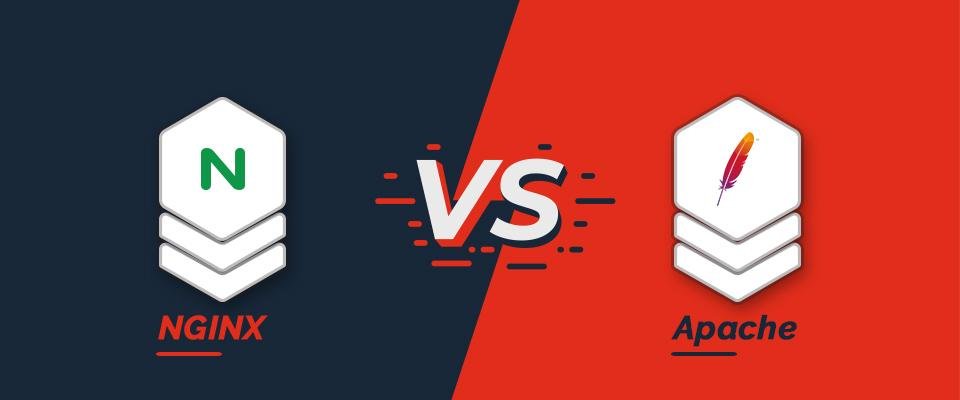Nginx vs. Apache: A Comprehensive Comparison

In the realm of web server software, Nginx and Apache reign supreme. Both are powerful, flexible, and widely used, but they have distinct differences that make them suitable for different scenarios. This comprehensive comparison will delve into the strengths, weaknesses, and unique features of Nginx and Apache, helping you determine which server might be the best fit for your needs.
Overview of Nginx and Apache
Apache is free, open-source web server software developed by the Apache Software Foundation. Launched in 1995, it has grown to become one of the most popular web servers in the world. Apache's modular architecture allows users to add and remove features as needed, making it highly flexible and customizable.
Nginx (pronounced "engine-x") is also free, open-source web server software. Created by Igor Sysoev and released in 2004, Nginx was designed with a focus on high concurrency, performance, and low memory usage. It has quickly gained popularity and is now a favorite among high-traffic websites.
Performance and Resource Usage
Apache
Apache uses a process-driven model, creating a new process or thread for each connection. While this model is straightforward and works well for low to moderate traffic, it can become inefficient under heavy loads. Each process consumes memory and CPU resources, which can lead to performance bottlenecks.
Nginx
Nginx, on the other hand, uses an event-driven, asynchronous architecture. Instead of creating a new process for each connection, Nginx uses a small number of worker processes to handle multiple connections simultaneously. This model is highly efficient and allows Nginx to handle thousands of connections with minimal resource usage, making it ideal for high-traffic sites.
Verdict
For high-traffic environments where performance and low resource usage are critical, Nginx generally outperforms Apache. However, for smaller sites with moderate traffic, Apache's performance is more than adequate.
Configuration and Flexibility
Apache
Apache's configuration is highly flexible, thanks to its modular design. Users can enable or disable modules to add specific functionalities, such as URL rewriting, authentication, and SSL support. Apache's configuration files (typically httpd.conf or .htaccess files) allow for fine-grained control over server behavior.
Nginx
Nginx also supports modular architecture but to a lesser extent than Apache. Its configuration files are simpler and more straightforward, using a block-based syntax. Nginx is designed to serve static content efficiently, with built-in support for reverse proxying, load balancing, and SSL/TLS termination.
Verdict
For users who need extensive customization and fine-grained control, Apache's flexibility is unmatched. However, for those who prefer a simpler, more streamlined configuration process, Nginx is a better choice.
Static vs. Dynamic Content Handling
Apache
Apache excels at serving dynamic content thanks to its tight integration with a variety of scripting languages and technologies, such as PHP, Python, and Perl. The mod_php module, in particular, allows for efficient processing of PHP scripts directly within the Apache server.
Nginx
Nginx is optimized for serving static content (such as HTML, CSS, and JavaScript) and is incredibly fast at doing so. For dynamic content, Nginx relies on external processors (like PHP-FPM for PHP scripts). While this adds an extra layer of complexity, it allows Nginx to maintain its high performance and low resource usage.
Verdict
For sites that serve a large amount of dynamic content, especially those using PHP, Apache's integrated approach can be more efficient. For static content or a mix of static and dynamic content, Nginx's performance advantages make it the better choice.
Security
Apache
Apache has a long history and a robust security record. Its modular architecture allows for granular security configurations, and it includes various modules specifically designed for enhancing security, such as mod_security and mod_evasive.
Nginx
Nginx also has a strong security reputation, with a focus on secure coding practices and regular updates. Its simpler configuration can reduce the risk of misconfigurations, and it includes features like rate limiting and IP blacklisting for additional security.
Verdict
Both Nginx and Apache are secure, but Apache's extensive modular options provide more tools for those needing advanced security configurations. Nginx's simplicity can reduce the risk of errors, making it a solid choice for those who prefer straightforward security setups.
Community and Support
Apache
As one of the oldest web servers, Apache has a vast and active community. There are numerous resources available, including extensive documentation, forums, mailing lists, and third-party tutorials. This makes finding support and solutions to problems relatively easy.
Nginx
Nginx also boasts a strong community and excellent documentation. While it may not be as extensive as Apache's, the available resources are high-quality and will continue to grow as Nginx's popularity increases. Commercial support is available through Nginx, Inc., providing additional assistance for enterprise users.
Verdict
Apache has a slight edge in community size and resources due to its longer history, but Nginx's support ecosystem is robust and continually improving.
Use Cases and Deployment Scenarios
Apache
Apache's strengths make it well-suited for:
- Websites with significant dynamic content.
- Applications requiring extensive customization and flexibility.
- Environments where integration with various scripting languages is essential.
Nginx
Nginx excels in scenarios such as:
- High-traffic websites need efficient static content delivery.
- Load balancing and reverse proxying for distributed architectures.
- Environments where performance and resource efficiency are paramount.
Conclusion
Choosing between Nginx and Apache ultimately depends on your specific needs and priorities. Apache's flexibility, extensive module ecosystem, and excellent handling of dynamic content make it a strong contender for many web applications. In contrast, Nginx's superior performance, low resource usage, and streamlined configuration process make it ideal for high-traffic environments and static content delivery.






